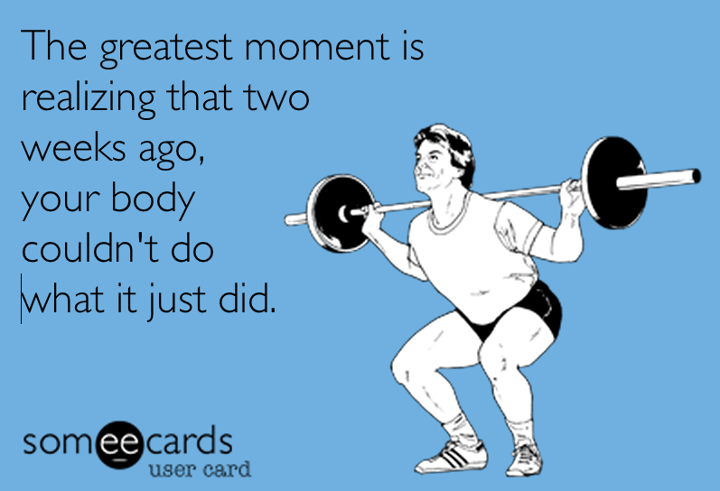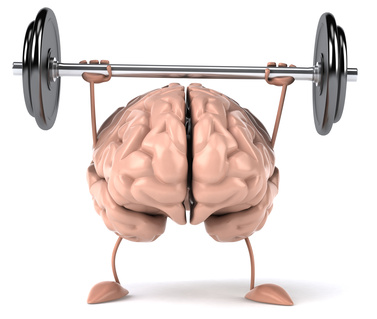
What I’ve Learned This Past Year (2012)
January 6, 2013 // Fitness, Nutrition, Wellness
Another year has passed and it’s time to reflect about all the new information I’ve learned this past year. Health information changes rapidly and the greatest teachers are those who keep learning. I compiled a list of small facts and tidbits that has significantly improved my education and training from this past year.
Best of 2012
-
Don’t prioritize your personal agenda over the needs of your body. Listen to your body. When you’re tired, your body needs to rest and repair. When you’re hungry, your body needs nutrients.
-
Fish Oils are the superior supplement for anyone, regardless of exercise history. They are very safe while being highly effective (lowering body fat, improving triglycerides, reducing joint pain, reducing general inflammation, etc.)
-
A gym is not necessary. Push-ups, pull-ups, planks, and lunges can be just as effective as the best fitness machines.
-
Anything that comes out of a package is not health nor natural.
-
A nap is one of the most underrated tools for recalibrating your mind and body. Take a 20 minute dozer to reset your energy levels.
-
Eat cucumbers. Cucumbers are a superfood because they are compromised of B-vitamins (energy), water (eliminates toxins), and silica (joint health).
-
Lactic acid is good. The “burn” sensation that is felt when muscles are exhausted during exercise is due to hydrogen building up in the muscle faster than the lactic acid can remove it from the muscle.
-
Work that tush. Back pain is a direct indicator of weak hamstrings/gluteals.
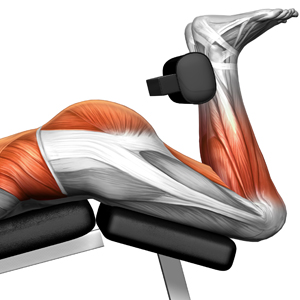
Do this to relieve back pain.
-
Breakfast doesn’t have to be the biggest meal of your day. Either does dinner. Or lunch. Overeating is just as bad as skipping meals.
-
“Exercise” is a stress/resistance placed on the body that exceeds its ability to perform endlessly, causing the body to reach failure in the movement.
-
If you can handle it, it’s not exercise — it’s just daily movement. [Example] If you regularly walk for a couple of hours a day, walking on a treadmill is not a challenge and therefore is not exercise. Same thing with resistance training. If you can perform bicep curls with 10 lb. dumbbells, exercise with weights exceeding 10 lb.
-
Drink water every meal. Assume you need water all the time. It’s the superior liquid for the body. Water improves everything.
-
Goods fats are great for you. Fish, Nuts, Oils, Seeds, Avocados. Yes, they pack a lot of calories per gram because fat is 9 calories/gram. No, they won’t make you fat — good fats help lower body fat.
-
Start cooking. Learn to sauté veggies and you’ll look forward to eating your greens everyday. Cooking teaches portion control and food selection creativity.
-
The body is meant to be stressed (exercise), nourished (food with nutrients), and rested (sleep). Exercise often.
-
Static stretching has very limited effectiveness on length. Mobility movements increase the range of motion of ligaments, tendons and muscles.
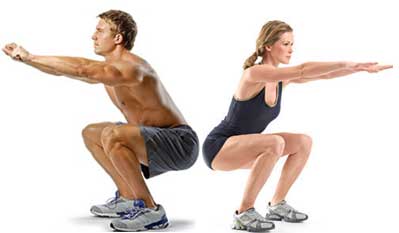
Hip Mobility.
-
Exercises don’t have a standard. Stay away from any workout program that tells you to perform “50 reps.” Real exercise is person-specific, so all the variables are partial to the person (weight, reps, sets, range of motion, frequency, selection of exercises, etc.).
-
Keep your body’s pH level in an alkaline state. The foods you eat affect the pH level (hydrogen-ion concentration) in your blood. Most people carry too much acid in their bloodstream, which has shown many links to diseases. Eat veggies and fruits to help reduce the acidity and improve the alkalinity of your blood.
-
You don’t need carbs for energy. Food provides energy, regardless of the macronutrient. Many species rely on sources of proteins and fats for survival and maintenance (even humans at one time). Don’t tell yourself you need bread.
-
Structure out your time. It’s easy to say “I’ll get to that soon”, but without a deadline it’s unlikely you’ll ever accomplish that goal. Quantify and prioritize your tasks if you really want to get them done.
-
Be aware — denial is half of the problem. The best diets use the same subliminal strategy: self-englightenment. Write down your daily habits. List the foods you eat. Take a good look in the mirror. Get on the scale. See where you are, what you look like, and what you are doing. In order to improve yourself, you have to first accept your current position.
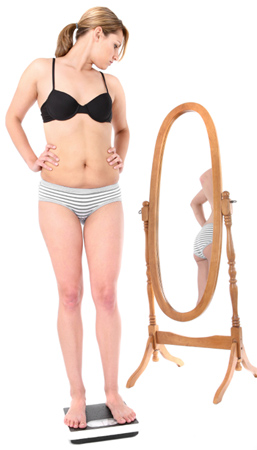
Moment of Truth.
-
Eat organic, if applicable. In the perfect world, quality foods absent of pesticides, preservatives, and additives would be widely-available and affordable. Unfortunately, you have to assume most foods are modified to last longer. Keep your body free of harmful by-products and eat whole, natural foods.
-
Alcohol is poisoned liquid. A glass of red wine may have some health benefits, but by no means is healthy. Understand that ethanol (alcohol) is detrimental to the body, though some types of alcohol have some benefits. Having wine on a nightly basis may seem appropriate because of culture or ritual, but limit your quantities to a minimal amount to see vast health improvements.
-
Social support is one of the most underrated factors for consistency. Research continues to show the positive effects of a strong support system when exercising or dieting. Consider working out with a friend, attending a nutrition support group, or joining a group exercise class.
-
Communication is everything. Whether writing an article on health or speaking with a loved one, speak clear and concise to get your point across. The best teachers in the world master the variables of superior communication (tone, structure, sensitivity, body language, confidence, breathing, etc.).
-
Try new things. It wasn’t until I questioned the norm that I discovered amazing health strategies. Assume that the body knows what it needs and will indicate what works and what does not.
-
Keep learning. Keep reading. Improve yourself everyday.
Here’s To A Strong & Productive 2013!
